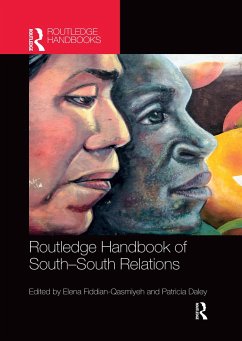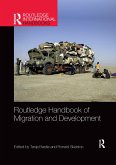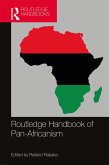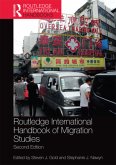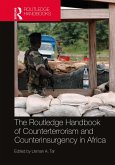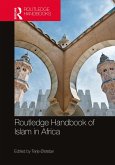South-South cooperation is becoming ever more important to states, policy-makers and academics. Many Northern states, international agencies and NGOs are promoting South-South partnerships as a means of 'sharing the burden' in funding and undertaking development, assistance and protection activities, often in response to increased political and financial pressures on their own aid budgets. However, the mainstreaming of Southern-led initiatives by UN agencies and Northern states is paradoxical in many ways, especially because the development of a South-South cooperation paradigm was originally conceptualised as a necessary way to overcome the exploitative nature of North-South relations in the era of decolonisation.
This handbook critically explores diverse ways of defining 'the South' and of conceptualising and engaging with 'South-South relations.' Through 30 state-of-the-art reviews of key academic and policy debates, the handbook evaluates past, present and future opportunities and challenges of South-South cooperation, and lays out research agendas for the next 5-10 years. The book covers key models of cooperation (including internationalism, Pan-Arabism and Pan-Africanism), diverse modes of South-South connection, exchange and support (including South-South aid, transnational activism, and migration), and responses to displacement, violence and conflict (including Southern-led humanitarianism, peace-building and conflict resolution). In so doing, the handbook reflects on decolonial, postcolonial and anticolonial theories and methodologies, exploring urgent questions regarding the nature and implications of conducting research in and about the global South, and of applying a 'Southern lens' to a wide range of encounters, processes and dynamics across the global South and global North alike.
This handbook will be of great interest to scholars and post-graduate students in anthropology, area studies, cultural studies, development studies, history, geography, international relations, politics, postcolonial studies and sociology.
This handbook critically explores diverse ways of defining 'the South' and of conceptualising and engaging with 'South-South relations.' Through 30 state-of-the-art reviews of key academic and policy debates, the handbook evaluates past, present and future opportunities and challenges of South-South cooperation, and lays out research agendas for the next 5-10 years. The book covers key models of cooperation (including internationalism, Pan-Arabism and Pan-Africanism), diverse modes of South-South connection, exchange and support (including South-South aid, transnational activism, and migration), and responses to displacement, violence and conflict (including Southern-led humanitarianism, peace-building and conflict resolution). In so doing, the handbook reflects on decolonial, postcolonial and anticolonial theories and methodologies, exploring urgent questions regarding the nature and implications of conducting research in and about the global South, and of applying a 'Southern lens' to a wide range of encounters, processes and dynamics across the global South and global North alike.
This handbook will be of great interest to scholars and post-graduate students in anthropology, area studies, cultural studies, development studies, history, geography, international relations, politics, postcolonial studies and sociology.
"Within the complex topographies of global power relations and the struggles for more just ways of life, this book restores vitality to the notion of many "Souths" through a comprehensive exploration of relations of all kinds-which in turn substantiate different ways of being in the world." -- AbdouMaliq Simone, Senior Professorial Fellow, Urban Institute, University of Sheffield, UK
"Only action from the global South will change world inequalities; but how? This handbook explores South-South connections, from economic development to politics, education, art and science, refugees, environment, and more. It is a great resource for all concerned with global justice." -- Raewyn Connell, Professor Emerita, University of Sydney, Australia
"Much has been written about the South, but very little has been written with the South and, even less, from the perspective of the South. This path-breaking book fills this gap. A must-read for everyone interested in knowing that one of the causes of our current global crisis stems from a massive waste of precious social experience forcefully emerging in this book." -- Boaventura de Sousa Santos, Professor of Sociology, University of Coimbra, Portugal, and Distinguished Legal Scholar, University of Wisconsin-Madison, USA.
"What is Pan-Africanism? What are its main tenets? Where and when did it develop? Is Pan-Africanism still relevant in the 21st century? What new questions are Pan-Africanists in the 21st century asking? These are some of the questions that Routledge Handbook of Pan-Africanism, edited by Reiland Rabaka, seeks to address ... While acknowledging that there is no single definition of or approach to Pan-Africanism, Rabaka makes it clear that for many Pan-Africanists, including those who contributed to this volume, "Pan-Africanism is simultaneously an idea and a movement, a kind of intellectualism and activism, a theory and a praxis" which "exists whenever people of African ancestry recognize and resist the particular ways continental and diasporan Africans have been racialized, colonized, enslaved, oppressed, and exploited" ... This book is a welcome contribution to the rich intellectual tradition of Pan-Africanism." - Simphiwe Sesanti (2020) Routledge Handbook of Pan-Africanism, International Journal of African Renaissance Studies - Multi-, Inter- and Transdisciplinarity, 15:2, 134-136, DOI: 10.1080/18186874.2020.1855829
"Reiland Rabaka'snew Routledge Handbook of Pan-Africanism is an expan-sive, if not exhaustive, work that provides welcome novelty and important scholarly coherence to the important, complex, and at times contradic-tory political, social, economic, philosophical, and cultural actions, activ-ities, and ideologies that underpin Pan-Africanism. This enormous volume, organized into seven parts and thirty-five chapters and represent-ing almost forty contributors, is a rich testament to the sustained interest in a dynamic force that not only propelled abolition, anti-colonialism, independence, and contemporary political upheaval, but also continues to shape African and African Diasporic lives into the present millennium." - Benjamin N. Lawrance, University of Arizona Tucson, Arizona, USA, doi:10.1017/asr.2021.28
"Only action from the global South will change world inequalities; but how? This handbook explores South-South connections, from economic development to politics, education, art and science, refugees, environment, and more. It is a great resource for all concerned with global justice." -- Raewyn Connell, Professor Emerita, University of Sydney, Australia
"Much has been written about the South, but very little has been written with the South and, even less, from the perspective of the South. This path-breaking book fills this gap. A must-read for everyone interested in knowing that one of the causes of our current global crisis stems from a massive waste of precious social experience forcefully emerging in this book." -- Boaventura de Sousa Santos, Professor of Sociology, University of Coimbra, Portugal, and Distinguished Legal Scholar, University of Wisconsin-Madison, USA.
"What is Pan-Africanism? What are its main tenets? Where and when did it develop? Is Pan-Africanism still relevant in the 21st century? What new questions are Pan-Africanists in the 21st century asking? These are some of the questions that Routledge Handbook of Pan-Africanism, edited by Reiland Rabaka, seeks to address ... While acknowledging that there is no single definition of or approach to Pan-Africanism, Rabaka makes it clear that for many Pan-Africanists, including those who contributed to this volume, "Pan-Africanism is simultaneously an idea and a movement, a kind of intellectualism and activism, a theory and a praxis" which "exists whenever people of African ancestry recognize and resist the particular ways continental and diasporan Africans have been racialized, colonized, enslaved, oppressed, and exploited" ... This book is a welcome contribution to the rich intellectual tradition of Pan-Africanism." - Simphiwe Sesanti (2020) Routledge Handbook of Pan-Africanism, International Journal of African Renaissance Studies - Multi-, Inter- and Transdisciplinarity, 15:2, 134-136, DOI: 10.1080/18186874.2020.1855829
"Reiland Rabaka'snew Routledge Handbook of Pan-Africanism is an expan-sive, if not exhaustive, work that provides welcome novelty and important scholarly coherence to the important, complex, and at times contradic-tory political, social, economic, philosophical, and cultural actions, activ-ities, and ideologies that underpin Pan-Africanism. This enormous volume, organized into seven parts and thirty-five chapters and represent-ing almost forty contributors, is a rich testament to the sustained interest in a dynamic force that not only propelled abolition, anti-colonialism, independence, and contemporary political upheaval, but also continues to shape African and African Diasporic lives into the present millennium." - Benjamin N. Lawrance, University of Arizona Tucson, Arizona, USA, doi:10.1017/asr.2021.28

